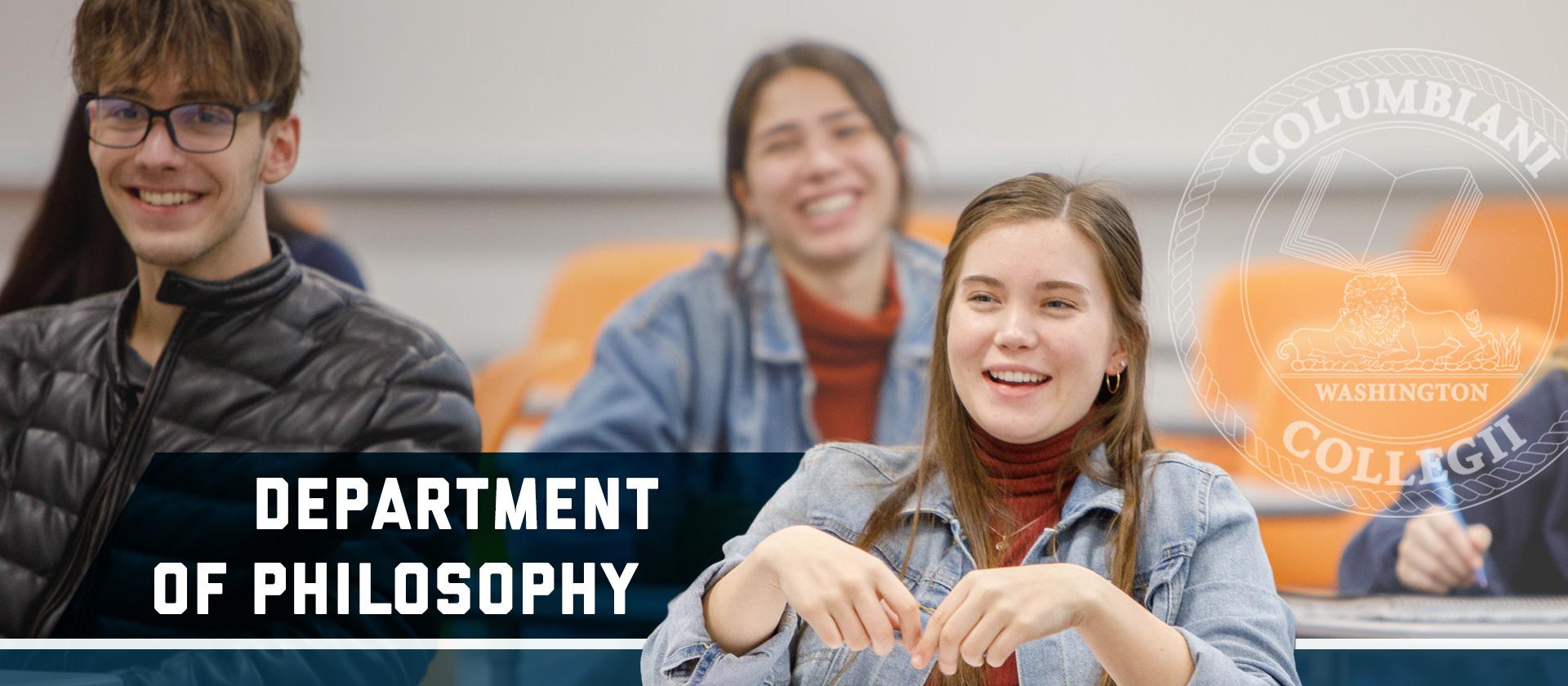Home
A COMMUNITY OF
KNOWLEDGE SEEKERS
Who are approaching real-world issues with open minds
What We Do
In the GW Department of Philosophy, students navigate some of life’s biggest questions and learn to formulate analytical responses. What makes an act “evil”? What makes a work of art “good”? Are smarter people less happy? What is reality?
Through interactive classes and faculty mentorship, philosophy students develop crucial skills for the workplace such as persuasive communication, critical thinking and respectful debate. We provide two tracks for students in the major — a traditional track and one that integrates public affairs. We also offer a distinctive MA in Philosophy and Social Policy.
Our location in downtown Washington, D.C., enables access to a variety of internship and networking opportunities, from policy work to think tank research. Upon graduation, many of our students secure jobs at top consulting firms, government agencies and international corporations.
Upcoming Events
View All on the GW Events Calendar
"The critical thinking skills I acquired while in the GW Philosophy Department are invaluable and have been useful throughout my process of diversifying my interests globally. The coursework helped me reshape and deeply understand my beliefs and develop confidence as I transitioned into the workforce."
Tomi Simisola Sodimu
BA '18
Philosophical Questions
Philosophers raise questions about many of the things people often take for granted in their daily lives.
- What makes an act immoral?
- What is reality?
- How can I be sure that what I think is correct?
- Do we have souls?
- What makes a work of art good?
- Am I the same person I was 10 years ago?
- Why are jokes funny?
- Does God exist?
- Who or what defines good and evil
- Are highly intelligent people less happy?
- Why do some people have very different opinions from mine?
- Can we know what other people are thinking, and, if so, how?
- Can we ever know what nonhuman animals think or feel?
- Do we have moral obligations to nonhuman animals? Deceased persons? Future persons? Cultural artifacts? Cultures? Ecosystems? Artificially intelligent machines?
- How do our race, gender, sexuality, ethnicity and social class affect our understanding of ourselves and others?
- Is social justice for all possible in our contemporary society?
- What can disability teach us about able-bodied experience?




